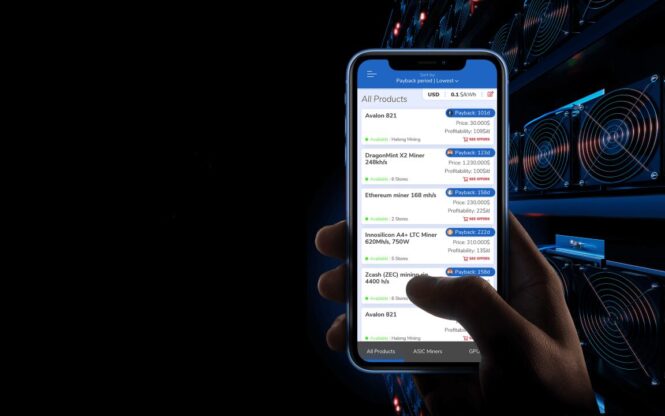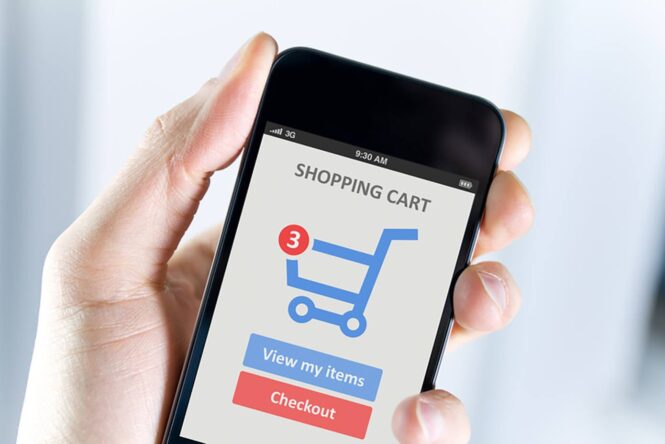Nowadays, each American has, on average, 80 apps installed on their mobile device. Mobile apps have become indispensable tools that have revolutionized our lives, work, and leisure. These versatile software applications, designed for smartphones and tablets, have entered our daily lives, from communication and social interaction to shopping, entertainment, and health management.
The Rise of Mobile Apps

The advent of smartphones in the late 2000s marked the beginning of a mobile app revolution. With their powerful processors, touch interfaces, and internet connectivity, smartphones provide the perfect platform for running innovative, user-friendly apps.
As the app ecosystem flourished, developers created apps for virtually every imaginable purpose, catering to a wide range of user needs and interests. Now, in 2024, Google Play has 3.72 million apps, and App Store offers 1.8 million apps for any taste and budget.
Mobile app development
Mobile app development has become an integral part of today’s digital landscape, allowing businesses and individuals to connect with users on an unprecedented scale. If you want to develop a mobile app, there are several things you need to know.
There are 2 major types of applications:
- Custom mobile apps are developed from scratch to meet the specific needs of a business or individual. They can be built to match the app’s creator’s exact look, feel, and functionality. Custom mobile app development is typically more expensive and time-consuming than premade apps, but they offer greater flexibility and control over their development and maintenance.
- Premade mobile apps are templates already developed and can be purchased and customized to a certain extent. They are typically less expensive and time-consuming to develop than custom apps but offer less flexibility and customization options.
Mobile apps can also be native, web-based, or hybrid.
- Native apps are built for a particular platform, for example, Android or iOS.
- Web-based apps use HTML, CSS, and other web technologies. They are similar to websites running in browsers.
- Hybrid applications are the fuse of native and web-based app features and can be used on multiple platforms.
How do you navigate through the variety of mobile app development services? Know your resources and needs. Set clear goals and expectations for your app, know your audience, and choose the platform and monetization method. Let your idea shift the future of mobile applications.
Global impact of mobile apps

Mobile apps have revolutionized communication, enabling instant messaging, video calls, and social networking platforms that connect people across borders and cultures. Mobile apps have profoundly impacted society, influencing communication patterns, cultural trends, and political movements. Social media apps have become powerful tools for social activism and raising awareness of global issues.
Today, chatting and sending e-mails are the most popular activities among smartphone users – more than 70% of responders use mobile apps primarily for socializing. 60% of responders prefer leisure activities, such as watching videos.
Let’s dive deep into how mobile apps transform our lives.
Communication and Social Interaction
Mobile apps have transformed the way we communicate and connect with others. Social media apps have become ubiquitous, enabling us to share our lives, connect with friends and family, and stay updated on current events. Messaging apps like WhatsApp, Telegram, and Signal have replaced traditional SMS messaging, providing more convenient and feature-rich communication.
Shopping and Business

E-commerce has undergone a massive transformation with the rise of mobile shopping apps. Apps like Amazon, eBay, and Alibaba have made it easier to browse products, compare prices, and purchase from anywhere in the world. Mobile payment apps like Apple Pay and Google Pay have further streamlined the shopping experience, allowing for secure, contactless payments.
Statista’s Market Insights states that mobile e-commerce sales reached a staggering $2.2 trillion in 2024, accounting for 60% of all global e-commerce transactions. This trend is driven by several factors, including the widespread adoption of smartphones, the convenience and accessibility of mobile apps, and the growing popularity of e-commerce platforms optimized for mobile devices.
Entertainment and Leisure
Mobile apps have affected the entertainment industry. Streaming services like Netflix, Spotify, and YouTube have revolutionized how we consume movies, music, and videos. Gaming apps have also taken off, providing various interactive and immersive gaming experiences.
Food delivery services have also rapidly grown. The global online food delivery market is on an upward trajectory, expected to reach a staggering $517.37 billion by 2032, representing a remarkable growth of 10.52% from its 2022 valuation of $190.28 billion.
Restaurants and grocery stores choose food ordering app development, as mobile apps can help reach new customers, increase order frequency, and receive customer feedback. Today, you only need a smartphone to receive your favorite dish.
Productivity and Efficiency
Mobile apps have also found their way into the workplace, enhancing productivity and efficiency. Project management apps like Asana and Trello help teams organize and assign tasks and track progress. Cloud storage apps allow seamless access to files and documents from anywhere.
Personal Health and Wellness

Mobile apps have also infiltrated the realm of personal health and wellness. Fitness tracking apps like Strava and MyFitnessPal help users monitor their exercise routines and calorie intake. Meditation apps like Calm and Headspace promote relaxation and stress reduction.
Telemedicine apps provide convenient access to healthcare professionals. Medical apps for patients, like WebMD and My Chart, introduce a wide range of features, from tracking symptoms and medication use to scheduling appointments and communicating with doctors.
The Future of Mobile Apps
The future of mobile apps is optimistic, with continued innovation and technological advancements. Artificial intelligence (AI) is expected to play a significant role, enabling apps to become more personalized, intelligent, and proactive.
Rising technologies, such as augmented reality (AR) and virtual reality (VR), are also poised to transform the mobile app landscape, creating immersive and interactive experiences that fuzz the edges between the physical and digital worlds.
Conclusion
Mobile apps have entered our lives, transforming how we communicate, shop, entertain ourselves, and manage our daily tasks. As technology develops, mobile apps will shape our future, shaping our interactions with the digital world.
Businesses will leverage mobile apps to enhance customer experiences, improve functionality, and gain a competitive edge. Individuals will continue to rely on mobile apps for entertainment, communication, education, and productivity. The future of mobile app development is filled with exciting possibilities, promising to revolutionize how we live, work, and play.
 Imagup General Magazine 2024
Imagup General Magazine 2024



